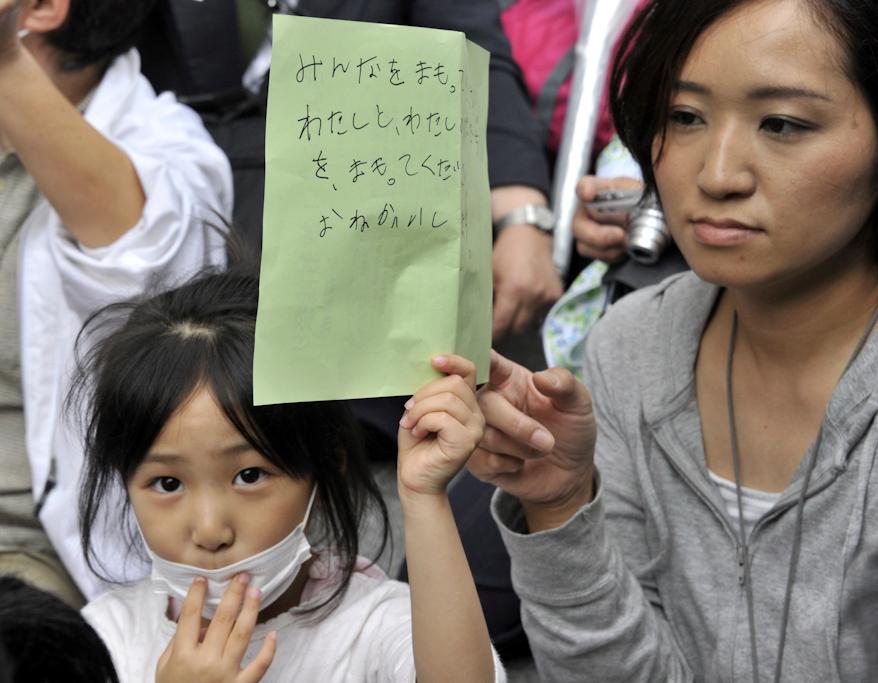Japan to give radiation meters to children living near Fukushima plant
A girl holds her petition to ask the education ministry to protect children from radioactive contamination at Fukushima prefecture during a rally at the Education Ministry in Tokyo on May 23, 2011. Some 400 civic group members, including 60 parents and children from Fukushima, demanded to review the radiation limit of 3.8 microsieverts per an hour as the education ministry has set a radiation limit to allow children in Fukushima.
Japan’s Fukushima city will give radiation meters to 34,000 children living near the crippled Fukushima Daiichi nuclear plant, in an attempt to calm public fears over exposure to radiation.
Children between the ages of four and 15 are to wear the radiation measuring devices, called dosimeters, around the clock for three months starting in September, a Fukushima education official told Agence France-Presse.
While Fukushima city is outside the Japanese government’s 12-mile no-go zone around the nuclear plant, many residents are worried about radiation exposure. The plant is less than 40 miles away from the city.
"We received the voice from the parents and citizens concerned about radiation exposure of the children. We decided to distribute them for the safety and assurance," Masazo Kikuchi, officer of the city's education board, told CNN.
The Fukushima Daiichi nuclear plant experienced three reactor meltdowns, explosions and radiation leaks after its cooling systems were damaged in the earthquake and tsunami on March 11.
Since the March 11 disaster, Japan has raised the legal radiation exposure limit for people, including children, from one to 20 millisieverts per year. This matches the safety standard for nuclear industry workers in many countries, but has drawn concerns from parents and environmental groups.
Greenpeace has urged Japan to evacuate pregnant women and children from Fukushima because of high radiation.
In Fukushima town, people, including children, were now being exposed to 10 to 20 millisieverts per year through the air alone, not counting contaminants inhaled or ingested through dust, water or food, Greenpeace said.
Experts say that children are at greatest risk from cancers and genetic defects from radiation exposure because they are still growing and will have more time to develop health defects, AFP reports.
The story you just read is accessible and free to all because thousands of listeners and readers contribute to our nonprofit newsroom. We go deep to bring you the human-centered international reporting that you know you can trust. To do this work and to do it well, we rely on the support of our listeners. If you appreciated our coverage this year, if there was a story that made you pause or a song that moved you, would you consider making a gift to sustain our work through 2024 and beyond?
